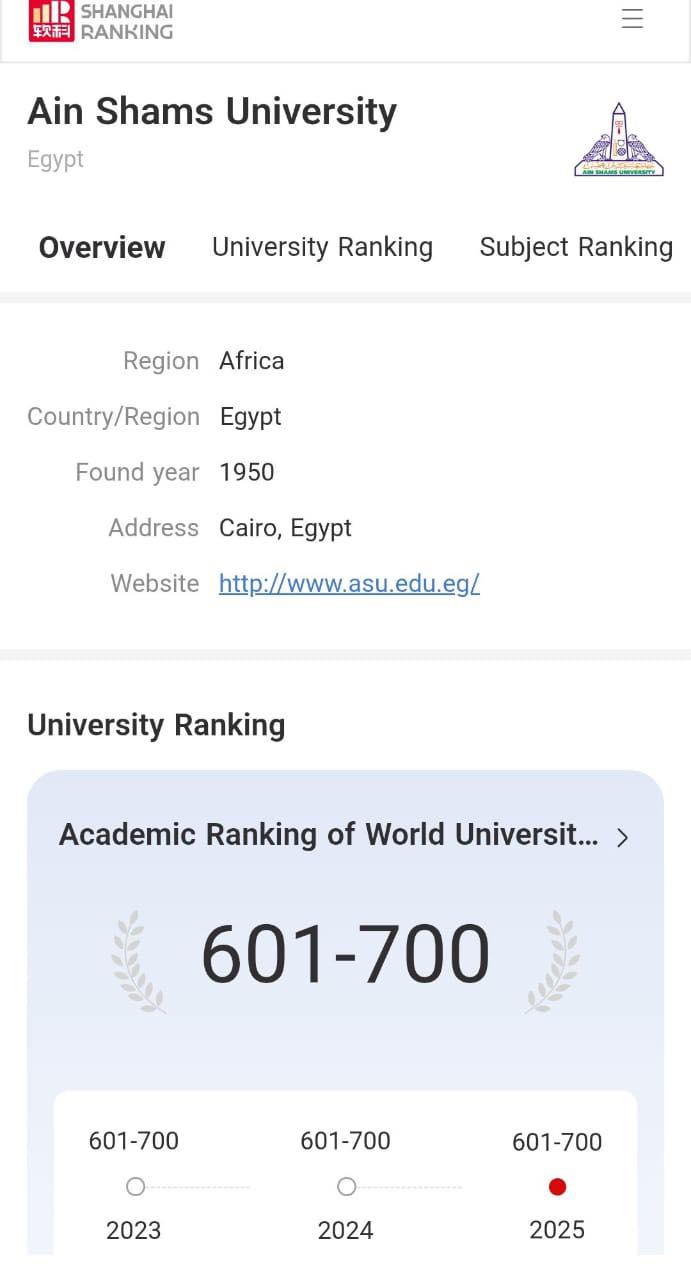For the third consecutive year… Ain Shams University is ranked among the top 700 universities worldwide according to the 2025 Shanghai World Ranking
Ain Shams University has maintained its ranking among the top 700 universities in the world according to the prestigious Shanghai Ranking, achieving a rank of 601-700. Under the patronage of Prof. Mohamed Diaa Zain El-Abedeen, President of the University, the university has maintained its ranking for the third consecutive year, relying on an increase in strong international publishing indicators, according to the ranking issued in August 2025.
This comes after it successfully reached the top 6001-700 universities worldwide in 2023, after being ranked among the top 701-800 universities worldwide in 2022.

Prof. Mohamed Diaa Zain El-Abedeen emphasized the university administration's efforts to lead international rankings and work according to a specific strategy for the university within the state's strategy for advancing in global rankings. He explained the university administration's ongoing efforts to raise the quality of joint research by registering many citations, thus providing a greater opportunity for publication in high-impact journals.
Dr. Ahmed El-Banna, Director of the University's International Ranking Department, stated that the Shanghai Ranking for 2025, one of the most prestigious international rankings, placed Ain Shams University in the 601-700 category among the top 1,000 universities worldwide, out of 2,500 universities included in this year's ranking. Ain Shams University also achieved the highest rate of research publications in Nature and Science among Egyptian universities.
The ranking is based on six key indicators: the number of university graduates who have won the Nobel Prize (10%), the number of faculty staff who have won the Nobel Prize and the Fields Medal in Mathematics (20%), the number of highly cited scientists listed in the Clarivate database (20%), the number of research papers published in Nature and Science (20%), the number of research papers indexed in the Science Citation Index, Expanded and the Social Sciences Citation Index (20%), and finally, the individual academic performance at the university (10%).


.svg)

